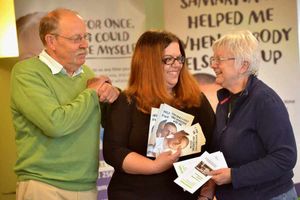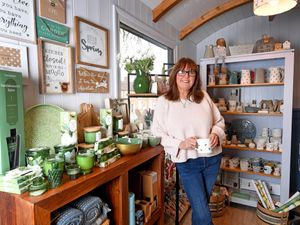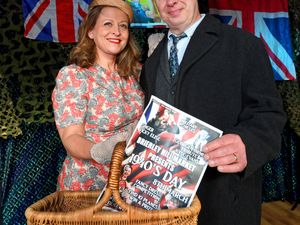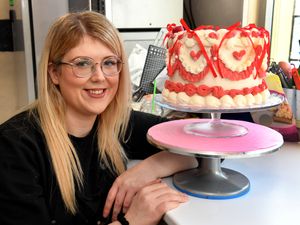What it's like to... Work for the samaritans
Since 1953, the Samaritans has been offering support to those that need it.

It has 201 branches across the UK and the Republic of Ireland, all of which work around the clock to be there for those requiring their help, no matter what.
But what's it like to be that person on the other end of the phone listening? What drives someone to dedicate their time to being a Samaritan? We wanted to find out.
Kerry Benson is the deputy director at the Telford branch. Though she's normally the listener, we gave her a call (off the clock, of course) and asked her to tell us all about it.
The 38-year-old is Shropshire-born and raised, working and living in Telford with her husband Pete and nine-year-old son Dillon. By day, Kerry is a full-time finance manager, but she's been involved with the Samaritans, on evenings and weekends, for five years.
She tells us how it came about.
"When I got divorced from my first marriage, my son was spending half his time with his dad and half the time with me, so I found myself with spare time. It was a case of getting something for myself, really, and something that was so different from my everyday work. I get to use much softer skills, there's more interacting with people and it's very different to my very hectic, financial work role. It gives me a whole other skill set."

That was back in 2011, and Kerry is still enjoying her time with the charity. She explains that there are two types of volunteers at the Samaritans – those who pick up calls and those who handle the behind-the-scenes stuff. Kerry handles recruitment as well as her 'listening' duties on the phone. It's something that took serious training.
"To become a listener, there are ten training modules that run over a two-month period. So you can complete them in the evenings and on weekends. The actual schedule varies on who we have to do the training, because as you can imagine, everyone at the Telford branch – with the exception of the cleaner – is a volunteer. It's about who's available and what their capacity is."
As such, the branch is reaching out to people to come forward and dedicate some of their spare time to helping others as a Samaritan.
"One of the things that we're very, very keen on is for ordinary people to come forward to volunteer. One of our biggest values is human contact, so it's about people being able to call up and have a voice on the end of the phone. For us, having the most diverse population of volunteers is really important – different sex, different background and different minorities. You don't know who's ringing – what voice are they expecting to hear on the other end of the phone? We like to have a really broad base.
"It's all about having ordinary people who can provide that listening service and be completely non-judgmental. Of course, we all as humans have judgements, but it's all covered through the training to leave any judgements at the door. I always refer to it as 'putting my Samaritan hat on' when I walk in the building."
The calls that the Samaritans receive are as diverse as the people volunteering there.
"That's one of the most interesting things about it for me. Every time you turn up, you just don't know who's going to be on the other end of that phone. That's why the support that we give to one another is so important. The one thing that's very different to Samaritans compared to most people's work lives is that it's completely confidential. The confidentiality is between the Samaritans as an organisation and the caller.

"We can't go home and say to our friends 'oh that was a horrible day because this or that happened'. We talk to each other about the calls that we hear, and that's how we debrief anything that's emotional."
And there are more calls than ever since the new number, 116 123, was rolled out as it's free to phone.
Kerry explains: "We have a new phone system now where calls are distributed to other branches with available staff, so there's a much higher chance that callers are going to get to speak to somebody.
"We do still get times when people can't get through, though. Some of our busiest times are actually from around 12 until three in the morning. That's when people are most likely to get an engaged signal.
"So while we are looking for people from a variety of backgrounds, we are also keen to hear from people who are available to volunteer at night, as that's our busiest time."
It may be busy, but being a Samaritan is a really rewarding role. "You get out more than you give, absolutely. I know that sounds really strange when you think of all the things that you're hearing – some of the calls can be quite difficult. But you get so much back – you feel like you're helping people.
"You don't always know if you've helped somebody, because when you put the phone down, you don't know what happens next. But being able to be there, and feeling trusted by someone, is absolutely amazing. Knowing you can listen to someone, give empathy and try to support them in the distress that they're in makes me feel very honoured."
And for us, it's been an honour to hear about it. Thanks, Kerry!
l The next recruitment open day at the Telford Samaritans takes place on Saturday, September 3 at 10am. For information call 01952 256 161. For free support from the Samaritans service, call 116 123.
By Kirsty Bosley




